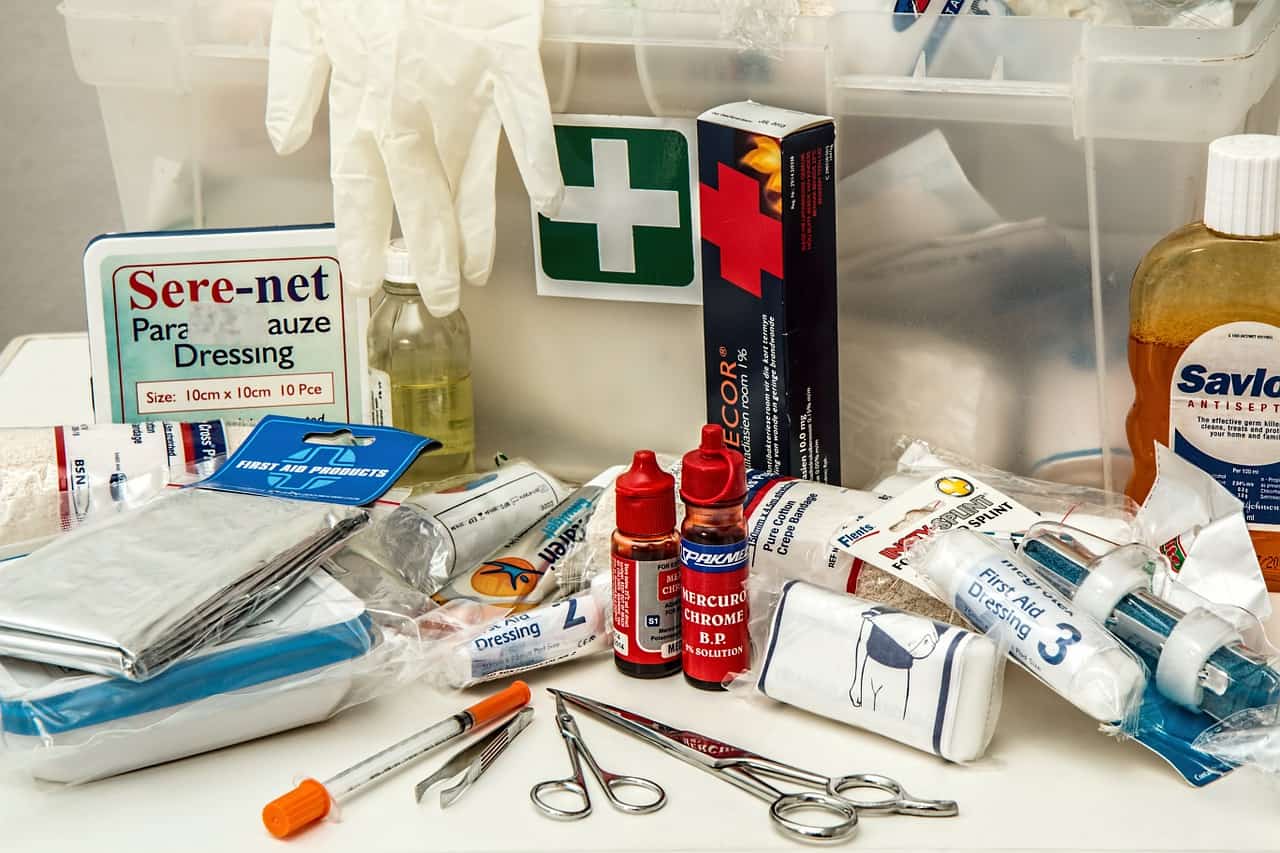Tips for Stocking a Basic First Aid Kit and How To Customize It for Seniors
Natural disasters, accidents, and health crises happen. Pegasus homecare professionals in Altadena and elsewhere know what to do in an emergency. They have compiled these tips on what to include in a first aid kit that fits your circumstances.
First aid is immediate attention to a medical problem. It can be as simple as removing a splinter in a finger. Or it can be a life-saving procedure, such as administering CPR.
Having a first aid kit enables you to respond quickly. A fast response reduces injuries or could save a life.
A first aid kit isn’t much use if it’s not quickly accessible. It needs to be located where you can easily reach it when needed. If you drive, keep a second kit in your car.
You can buy pre-assembled kits at many retail stores and pharmacies. Those will have the basics, but might not meet your needs. You can add to them or build your own from scratch.
What to Include Depends on Many Factors
Items to include depend on your medical conditions, if any, and your level of activity. Will you be alone in the event of an emergency, or are others nearby to assist you? Think also about whether you will be responsible for others, such as a spouse or grandchildren.
Medical problems encountered in the home environment by seniors include:
- Burns
- Choking
- Cuts, scrapes, and scratches
- Falling
- Heart attacks and strokes
- Heat stroke
- Hypothermia
- Insect bites
Prompt first aid is essential but call 911 first for life-threatening conditions.
The home first aid kit should have a list of your medical conditions and medications. That helps first responders treat you if you’re unconscious.
Basics to have in your kit include:
- An assortment of bandages
- Gauze and tape
- Antiseptic wipes and sanitizers
- OTC pain relievers
- Medical gloves
- Antibiotic ointment and hydrocortisone cream
- Scissors
- Tweezers
It’s a good idea to include a first aid book for reference.
Seniors Often Need Customized Supplies
As you supply your kit, keep in mind that all-purpose products might not be right for you. For example, your prescribed meds may prevent using OTC painkillers. As a senior, you may have to create a custom first aid kit.
Your skin may be fragile, or your bones may be brittle. You might also bleed easily. Using a regular band-aid can turn a minor cut into a serious injury.
Customizing a kit can include consideration of the following:
- Shears – these are in addition to scissors for cutting tape or gauze. If you fall, using shears to cut away clothing can be easier and safer than trying to remove it.
- Butterfly closures – these will hold the edges of your skin together if you’re cut. If your skin is particularly thin, stitches are not an option. A butterfly closure can prevent the need for stitches in some cases.
- Self-adhering bandages – these stick to themselves, not to your skin. As well as not damaging your fragile skin, you don’t need tape or fasteners to hold them in place. You can also wrap them around your arm or leg if needed.
- Transparent film dressings – these will stick to your skin but are gentler than conventional bandages
- Paper tape – this does stick to your skin but isn’t as irritating as standard bandages. You can also wrap it around a wound on your arm or leg.
- Non-stick gauze – this isn’t as good as a transparent film dressing, but it’s readily available at pharmacies everywhere. If you’re bleeding, try to stop the bleeding first, as the gauze can stick to drying blood.
Your doctor or pharmacist might have other suggestions or specialty products for you.
Disasters Require Additional Supplies
A well-stocked first aid kit is an integral part of disaster planning. Will you have everything to meet your medical or emergency needs if you have to leave home?
In addition to the basics, Mayo experts suggest including items such as the following in a waterproof kit:
- A list of emergency phone numbers, such those for your family doctor
- Contact information of family members
- Documents with your medical history and a medical consent form
- Flashlight and extra batteries
- Waterproof matches
- Something to write on and something to write with
- Space blanket
- Your cell phone and solar charger
- Sunscreen, insect repellent
- OTC painkillers
- Your prescription medications
You will need to replace your meds with a fresh supply as needed.
If you have a pet, don’t forget a kit for it. Follow the basic human guidelines for items to include for your pet. You can add items for your pet to your supplies or prepare a separate kit.
Your vet can recommend specific supplies. An elderly pet will need different items than an inquisitive young one. Do include your vet’s phone number, so that you don’t have to hunt for it in an emergency.
Pegasus homecare professionals in Altadena and our other locations can help you prepare a custom first aid kit. They understand what you’ll need in an emergency situation. We’re always here for you regardless of the level of assistance necessary to maintain your safety.

